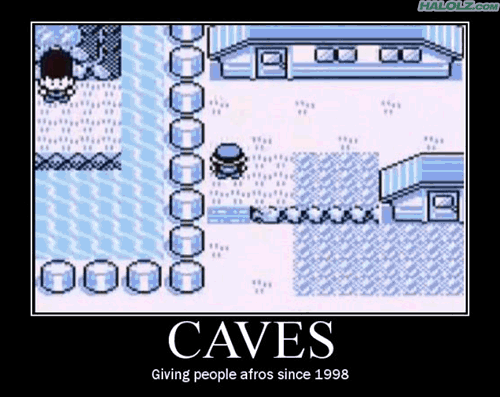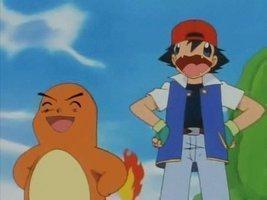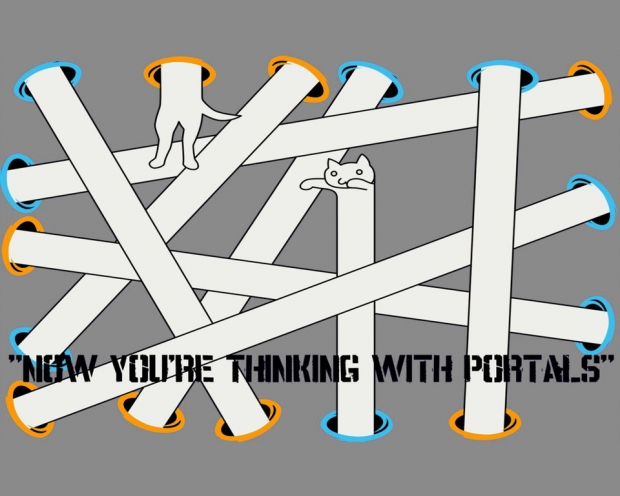When
growing up, I would have to admit that the best game I played was the Pokémon Silver Version game. I received the game along with a brand new
Gameboy Color as my Christmas and Birthday present (as my birthday IS on
Christmas). Not only that, but my younger brother received the Pokémon Gold
version along with a brand new Gameboy Color.
The
times that we had with those games are still very fond in my memory. We were
able to play with each other. We were able to fight each other by hooking the
two games up with a link cable. As the years went by, my younger siblings got
other Pokémon games as well, and we were able to play along with each other.

For
those of you who are no aware of the storyline for the Pokémon series, you take
the role of a young child (usually around 10 or 11 years old) who is sent out
into a world full of powerful creatures called Pokémon. While this may seem
like a perfect recipe for disaster, in the game things are generally peaceful
with the exception of at least one troublesome group who is bent on using Pokémon
for their own purposes. However, it is up to you to set things right. Along the
way you train your Pokémon and catch new ones, and you use your Pokémon to
battle the Pokémon of other trainers.

While this sounds
like nothing more than a glorified form of animal cruelty, the games have never
really struck me as advocating for animal violence. The ideas of forming
friendships with your Pokémon and treating them with kindness and care are
always what separates you, the player, from the majority of the bad guys in the
game.
Now for something
completely different.

As a society, we
seem to have a fascination with the destruction of ourselves. Maybe you could
say that it’s evident in the way that we follow the destructive patterns of
celebrities, or that we tend to portray love as something being very primitive,
where we get together because of our fierce passions, but then those same
passions lead us to fight and tear ourselves apart in a spectacular show of
emotional gore.
I think, though,
that it’s most evident in the love affair with have with post-apocalyptic
scenarios. If you look at
H.G. Wells “The Time Machine”, you see the main character go forward it
time, seeing the rise and fall of civilizations, until he reaches the very end
of the world itself. With the dropping of the nuclear bombs on Japan, though,
we suddenly realized how easy it would be to truly destroy everything humanity
had ever worked to build. Science fiction is chock full of the post-apocalyptic
world, either destroyed by aliens, or the bomb, through natural disaster, or
any other number of ideas.

I can think of
civilizations before our own time who had thought about the end of the world.
The Aztecs, for one, believed that the world had already gone through several
deaths and rebirths, and that the cycle would continue. There are Native
American tribes who have a similar idea. The Norse had the idea of “Ragnarök”, where the forces of good and evil would fight and destroy the entire
universe, only leaving a very small handful of intelligent beings behind. The
majority of Christian religions believe the world itself will be destroyed and
those who are found worthy will be taken into Heaven. So the idea of the world
ending, or of civilization coming to an end, isn’t new.
But did any of
these groups have a very extensive, and almost obsessed, interest in their own
end? Did they have literally thousands of stories of different scenarios like
we do? Why is it that we seem to be so fascinated with the destruction of
ourselves?
I personally love
to see the post-apocalyptic world because of how I can use it to measure our
own world against a possible future. I don’t necessarily believe that the world
will be bathed in nuclear fire, with only a handful of humanity surviving in
underground vaults while the surface world mutates horribly, but I find that
the distinctions, and more importantly the similarities, that I can see between
this hypothetical world and our world to be very striking.
It’s those
similarities and differences that I want to explore, because they really are
fascinating. In the world of Pokémon, you have a very established and stable
world where extremely powerful beings are used in battle between groups of all
ages. The ‘bad’ groups are either motivated by greed or ideals, but even they
are stopped by a single person each time, which goes to show how powerful an
individual can be in this society.
But I feel that
there are a lot of potential issues. Pokémon grow through the process known as
‘evolution’. Essentially, when exposed to certain types of radiation, or when
trained enough, or even when coming into contact with another Pokémon, they
grow much stronger and change shape within a few seconds. What would happen in
a world where humans are artificially manipulating the process of ‘survival of
the fittest’ by battling these extremely strong creatures together all the
time? I think that you would see the rise of deadlier Pokémon, as the only ones
who would be left in the wild to reproduce would be the ones who are able to
avoid or defeat a human trainer. And given the unique ability of a Pokémon to
go through evolution extremely quickly, it probably wouldn’t be possible to predict
what new dangers were going to show up.

In the end, I
think that we are so fascinated with the end of the world because we are aware
that while things are rather good for us right now, like in the world of the Pokémon
games, there are a lot of things that aren’t being addressed. We continue to
furiously use up resources that aren’t renewable. We continue to ignore our
incredibly vital long-term needs in favor of the less important short-term
needs. I want to try and explore in the game how a society dies, and what
happens in the birth of new ones.
Can a society be
aware of its problems, and still choose to continue along its path so that it
may destroy itself? And do the new civilizations coming from the ashes of its death
learn from their ancestor’s mistakes? Ironically, it may be that only those who
have died can tell us the truth, but unfortunately they are dead and we
continue to be blind.

















